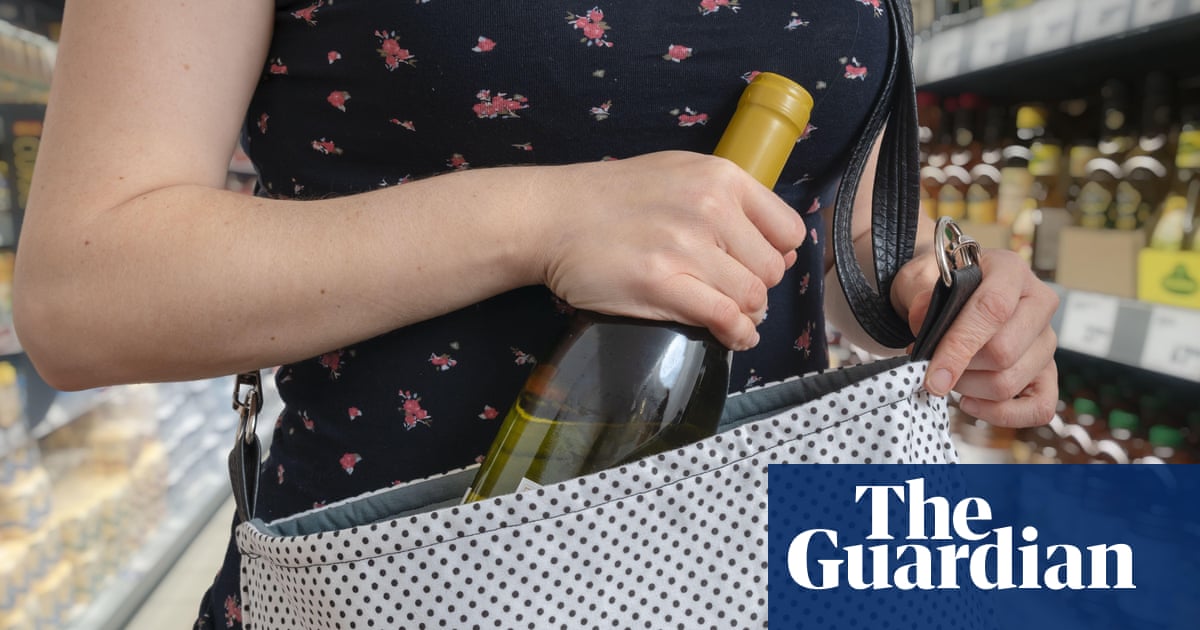UK shops ‘buying stolen goods from professional shoplifters’

Shops across the UK are buying stolen goods from professional shoplifters who thieve to order for criminal gangs to feed their addiction problems, retail groups have said.
The Association of Convenience Stores (ACS) said its members were reporting “high volume” and “very brazen and direct” incidents of shoplifting, with meat, cheese and alcohol items typically targeted.
Businesses report seeing their items for sale locally or on Facebook or WhatsApp groups after being stolen.
James Lowman, the ACS chief executive, said he was aware that other businesses, usually smaller shops, were also buying stolen goods.
Lowman said thieves were stealing to order, speculating that buyers may be turning a blind eye because they could not be sure if items were stolen.
He added: “What we are seeing is a higher volume of theft from the same people who are professional shop thieves, often doing it to feed addiction problems. And how do they do that? Well, they resell the products. And so we think there probably is a stronger market for those resold products.
“And that is something that we have been observing and talking about for the last couple of years.”
Andrew Goodacre, the chief executive of the British Independent Retailers Association (Bira), said he was aware of criminal gangs getting involved in organising shoplifters, improving their ability to steal and dispose of the goods.
He also described hearing more cases in the past year of other stores buying the goods once they had been stolen.
Martin Gaunt, the owner of gifts store Happy Piranha in Truro, Cornwall, said he followed one thief and witnessed goods taken from his shop being sold on to another trader.
Goodacre said: “I think often it used to be, and it still is, items like meat and cheese. But now our membership consists of pet shops, clothing shops, hardware stores, cookware stores, gift shops, independent department stores, clothing shops.
“And I think 80% of them report stuff being stolen now which they wouldn’t have done two or three years ago. People are stealing pet food, pet accessories, cleaning materials, kitchen utensils, kettles, all sorts of things, depending on what’s been ordered. But also because putting a cheap kettle on Facebook Marketplace is likely to get a sale very quickly.”
The ACS said 5.6m incidents of shop theft were reported by its members over the past year, with half of the shoplifters being repeat offenders.
In the last year, convenience stores spent £339m on crime prevention, such as CCTV, alarms and tagging, the ACS said.
A former prolific shoplifter told the BBC he stole goods worth tens of thousands of pounds and regularly sold the items to other shops.
Ross, 39, who has 15 convictions for shoplifting but has never been to prison, estimated he stole goods worth £300 every day, which he would then sell on to fund his crack cocaine and heroin addiction.
after newsletter promotion
He told the broadcaster he had also stolen to order for a middle man, who would then sell on the goods. He said perfume, cosmetics, alcohol and food were among the items he would regularly steal and sell on “as the cheapest wholesaler”.
Lowman said hearing this would be “galling” for business owners.
A British Retail Consortium (BRC) spokesperson said stolen goods were ending up in “unscrupulous” restaurants, on market stalls and online marketplaces.
There has been a rise in recent years of gang-oriented retail crime, with thieves turning up at numerous different stores of the same company in a day, the spokesperson said.
He added: “It’s tough for retailers because they do report these crimes and there are processes they go through. But the police response is so low at the moment that unfortunately these crimes aren’t treated with enough seriousness at the moment.
“These gangs realise they can get away with it.”
Stephanie Karte from Retailers Against Crime said: “You’ll have your local offender who, unfortunately, nine times out of 10 has an addiction, whether that be alcohol, drugs and, at the end of the day, they’re stealing to feed their habit.
“Basically the items that they do steal, they’re getting money from that and then where’s the money going? It’s going to the drug dealer.
“So at the end of the day, when you think about it and all of these little things, it’s all really funding a more serious crime.”
Related
Tesco trials giant trolley scales in Gateshead
Although some Reddit users who commented on the photo of the scales were positive with one saying "they are 10x more convenient and faster", many were more crit
Popular shop closes doors in ‘huge loss’ to loyal customers
A beloved high-street shop will close its doors after 20 years in business, coming as a "huge loss" to loyal customers. Simply Baby in Lancaster announced on We
Shoppers claim Tesco has gone too far with new ‘dystopian’…
Tesco is trialling a new checkout feature (Picture: Alex Segre/UCG/Universal Images Group via Getty Images) Tesco shoppers in Gateshead might no
Stars from BBC show Gladiators to appear at Bluewater Shopping…
The stars of the show will be at Bluewater Shopping Centre on Saturday, March 22, and Sunday, March 23, for an "action-packed immersive experience". The













